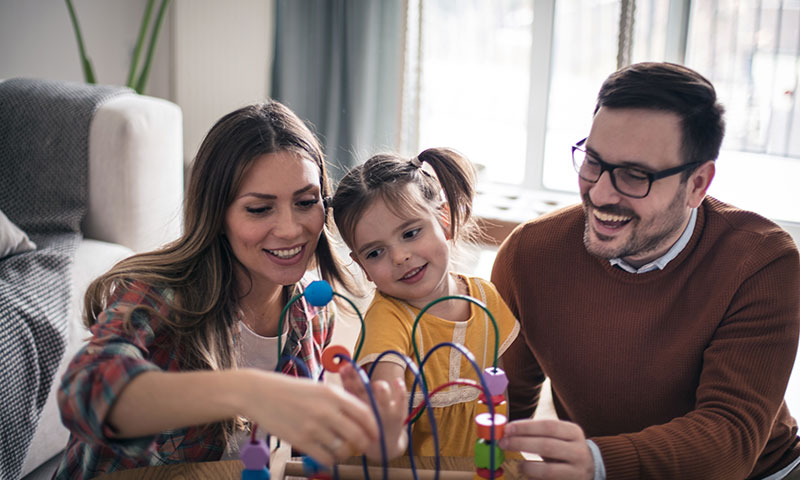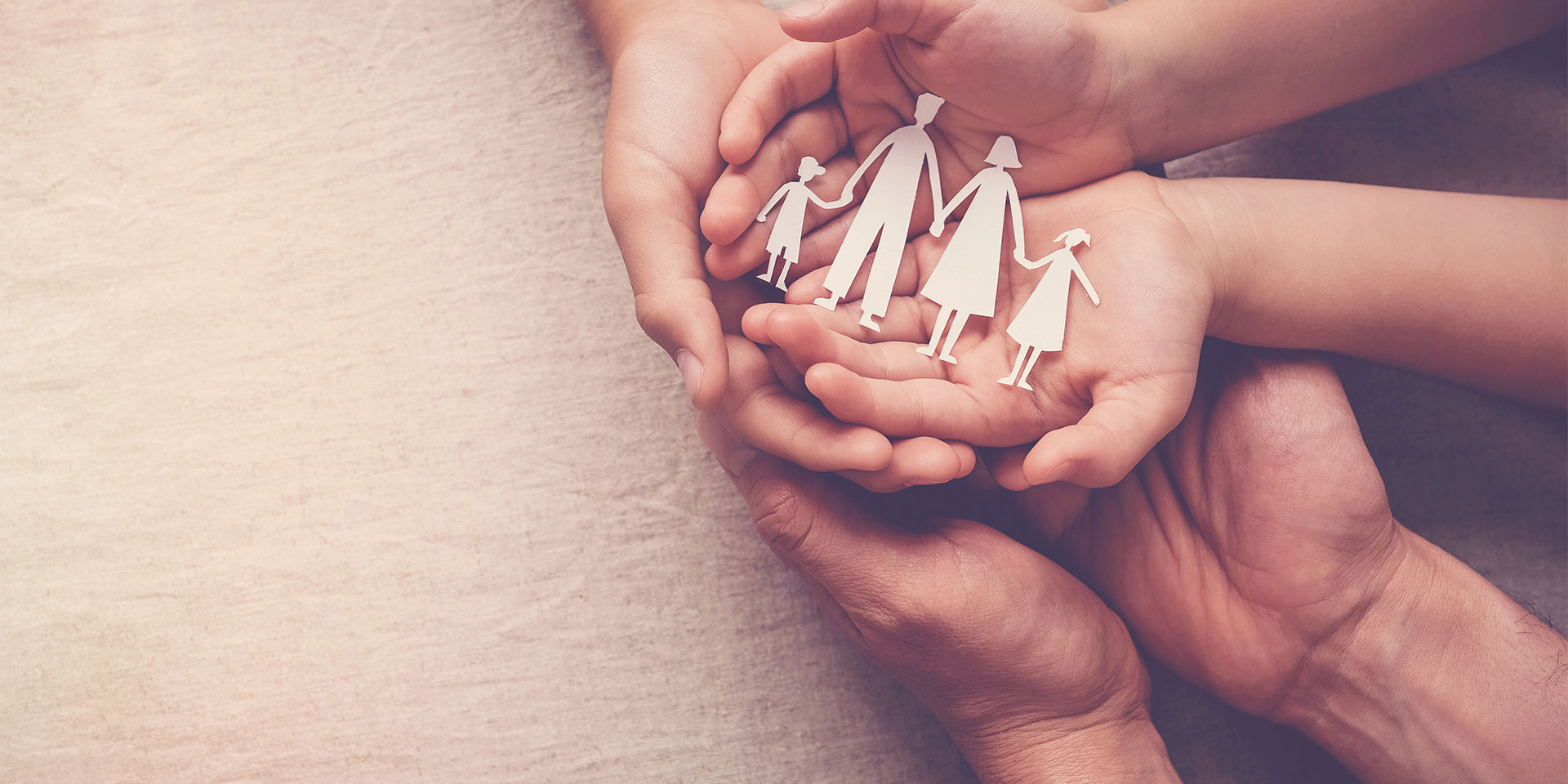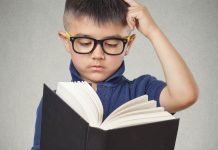A few years ago, I had the pleasure of meeting a young woman who was good at everything. Although she was only in her early twenties, she was an expert in the kitchen, passionate about cleaning, attentive to the needs of children, had a green thumb, was skilled at raising animals and was able to give an articulate speech in her field of activity. The fact that her parents involved her daily in household chores did not push her to neglect her studies, as some parenting folklore goes. On the contrary, she had finished college, enrolled in a master’s degree, and wanted to pursue a doctoral programme.
When I was her age, I knew at most how to peel an onion, my domestic performance being the direct fruit of the prejudice that children must be left to study and play, not to be put to work. Having everything given to me on a platter (literally, usually in a double sized portion and in front of the TV), I had become comfortable, clumsy and dependent. Long overdue, when my ID revealed an age that intensely sanctioned my conscience, I began to catch up with the lessons I had missed: doing household chores, managing my budget carefully, spending more time in the kitchen, and giving up the idea that others should solve my problems.
Unfortunately, hyper-protective parents often play the “They’re too small, we don’t want to take away their childhood” card. They refuse to hold their children accountable, to set them separate tasks from school, inhibiting their numerous developmental opportunities. And then they complain that it is too late. Even so, the mistakes don’t stop there.
The science of raising a child means more than listening to the maternal or paternal instinct, and practice shows that parents have a lot to learn. Children do too. So, beyond the opinion of the experts in modern parenting, we can learn valuable lessons from the way we were raised ourselves, from the successes and mistakes of our parents, without punishing them for what we consider to have been wrong, insensitive or inappropriate—perfection on planet Earth is not even for them. Before we have children ourselves (and throughout future generations), we can prepare from manuals and books, but also by exploring the most important resource at hand: personal experience.
As far as I am concerned, the example of my own parents helped me to conclude that there are certain taboo practices in raising, caring for and educating children.
Lack of accountability
As you probably have already read between the lines, my only childhood obligations were to study, play, and eat everything on my plate. Far from portraying the most ideal model, the image of parents gravitating around the baby characterizes many families.
To be honest, there are objective reasons for this state of affairs, one of them being the lack of free time: classes, homework and extracurricular activities last for hours and can hinder the intention to cultivate the practical spirit of the young one. There is no more time or energy.
However, taking small steps can lead to miracles. Even before 1st grade, the child should be familiar with certain easy tasks: picking up toys, making the bed, watering the flowers, etc. As they get older, new chores can be added to the list of daily and weekly tasks, depending on the availability of the child, their physical stamina and their degree of maturity. The instructions must be simple and clear, and the encouragement, on point. Children like to feel useful and receive verbal confirmation of the importance of their achievements.
Books on the topic (and, of course, the internet) abound with recommendations and worksheets adaptable to each case. As long as they are not presented as a chore, but as natural elements in the daily routine, household activities will teach children patience, discipline and perseverance. They will increase their self-esteem, as well as their ability to accomplish what they set out to do. They will strengthen their sense of personal independence, an ingredient so necessary to their emotional balance.
The importance of grades (and comparing to others)
Every parent wants what is best for their child. Some parents confuse this supreme good with straight As. Recently, many young voices from the online environment have lined up to denounce the bankruptcy of the Romanian education system that is not adapted to the current reality, stating that school prepares students for the Olympics, but not so much so for life. In all honesty, learners have an extra chance at professional success. However, what teachers fail to mention is that the coveted success in adulthood depends on other factors as well, not just top grades.
Relating to the standards of the majority favours conventional thinking and conformity, while the fear of criticism shapes the child into what others want them to be.
Personally, I am among the children who have felt the pressure to achieve at school. Needless to say, over 80% of the information accumulated evaporated as if by magic. In fact, it evaporated in a perfectly explicable way: either it was superficially assimilated (i.e. memorized, or purely theoretical, without a direct connection to real life) or it did not represent topics of interest that would accompany me in the long run. The only time I could blame extenuating circumstances for poor results was when other “good” students failed as well.
Since then, I discovered a few things that are important in the learning process. Looking back, I would have preferred to have been involved in extracurricular activities, so beneficial to the development of personality, imagination and creativity, rather than striving for the false assurance of getting straight As.
In addition to affecting children’s natural interest in deciphering the universe, the importance given to grades and the constant comparison with others give them the impression that they are mere trophies; that they have value only when they know their lessons by heart. Moreover, the exclusive hunt for grades and prizes creates frustrations, inferiority or superiority complexes, and physical and mental exhaustion.
In my personal experience, the best parenting strategy in terms of education starts from the idea that the priorities in the learning process are intrinsic motivation, stimulating curiosity and deepening areas of interest. The results come last.
Parenting: appealing to the standards of the majority
What will people say? Here is a seemingly harmless wording that eagerly bites people.
This world, to which some parents relate as if it were a true moral court, lives with the certainty of owning the absolute truth. Otherwise, why would they make value judgments about matters that do not concern them: about what someone did, about other one’s marriage, about who knows who’s children? Society is full of judges whose habit, lack of occupation, or inability to manage their frustrations push them to scrutinize other people. Those were the ones once invoked by my grandparents, for fear of public shaming, and by my parents, who made sure to warn me that the world was always on the lookout for anyone who broke the rules of being a good child.
Relating to the standards of the majority favors conventional thinking, conformity, and the fear of criticism turns the child into what others want them to be. What is really beneficial for the kids is to appreciate the opinion of important people and not to regulate their behavior for the sake of just anyone.
In one form or another, we all seek validation: we want to be accepted, to be told that we are on the right track.
However, behavioral standards do not depend on the intrusive opinion of strangers who believe they know everything, but on the value system of the reference group, family and close friends. They come from our own beliefs and needs.
In an ideal parenting strategy for protecting children’s identity and authenticity, parents need to teach them how to think on their own, without seeking approval from others.
Displaying negative emotions
A social media meme reads as follows: I don’t run from problems. I sit on the couch, play on my phone and ignore them, like all the other adults. I resonate with this hilarious statement because I also often deal with difficulties by resorting to traditional avoidance behavior. After that, I instinctively think of my mother, of how she felt difficulties when I was little, of her negativity, of her general anxiety.
I know that this scenario is common, that many children witness their parents’ dramas, drawing harsh conclusions about the world and life. Unfortunately, it often happens that adults vent in the presence of their children, talk about fears and challenges without thinking that excessive pessimism is seriously harmful to their kids’ emotional wellbeing. In the absence of filters, the little ones look at reality through the eyes of parental figures and live it likewise.
The display of negative emotions should be avoided. The emotional charge overwhelms the children, takes them away from their playful universe, full of age-specific joys. It turns them into gloomy, reserved and fearful beings.
Children do not have the strength to assimilate older people’s problems. Thus, in order to have empathy and a solid shoulder to cry on, adults should turn to their peers.
Parenting. Learning from positive examples
Parents are the easiest people in the world to judge. Whatever they do and say is often used against them by other people who are convinced that they have the ultimate truth about raising children. Even if they’re not their children. The statement is, of course, generalization, but it captures the essence of a tendency, that of looking at others’ realities through our own lens, without taking into account what makes us real and unique: free will.
However, the focus isn’t on the vulnerability of parents to value judgments, but the usefulness of said judgments when they come from our children, the direct beneficiaries of parental efforts.
When they reach adulthood, children either criticize or praise their parents, wanting to follow in their footsteps. Most of them position themselves in the middle, a sign that they experienced both ups and downs in their family of origin—negative feelings intertwined with joy. Of course, there are things we wish they, our protectors, had done differently. But they also made sacrifices for which we are grateful.
As to my personal example, I can say that, along with the lessons already mentioned, stand the main pillars of childhood, the real parenting strategies from which I received lessons that will help me in the future. While precious topics such as the importance of children’s empowerment, downplaying of grades, cultivating well-being, and the relativity of standards have been taught by counterexample, others have naturally sprung from a positive practice.
Patience solves any situation; the child can be disciplined without a beating; brothers should not be treated preferentially; affection is shown through words, gestures and deeds; flexibility is at least as compelling as strictness; permissiveness does not mean pampering; meekness blurs many flaws—these are just some of the guiding principles of unconditional parental love.
The opportunity to explore the good and bad aspects of the actions of our parents, grandparents and other important figures is available to anyone. What can we do to make the process fruitful? A pertinent answer is very close to us: “Hold on to what is good” (1 Thessalonians 5:21).
GENIA RUSCU thinks parenting is a field that allows us to be self-taught. When correctly understood, the practical lessons learned from the successes and mistakes of our parents help us to perfect the model we inherited.



















